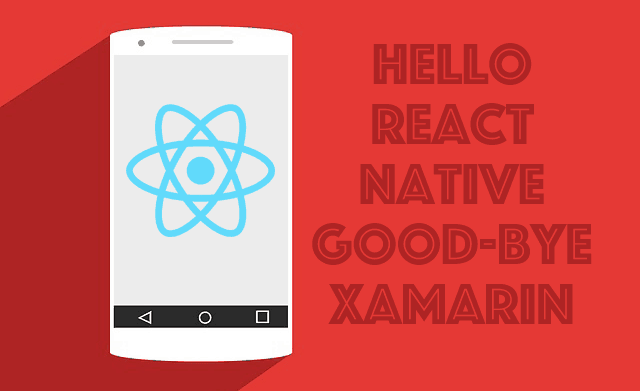My Biased React Native Review – Good-bye Xamarin
Hello React Native, Good-bye Xamarin- Really?
As a novice mobile app developer, our goal is to yield top-quality apps right from the get-go. This is why it is essential for us to use the right development tools and programming languages.
I am always on the lookout for the most efficient mobile app development tools that will help me reach my goals.
I have been tinkering with Xamarin for quite some time now, but I have recently started exploring React Native and have discovered its great potential.

This React Native review highlights its main features, gives several compelling reasons why it is now my preferred framework for building native apps versus Xamarin, and why you should start using it.
React Native vs. Xamarin Forms
I started Xamarin a couple of months back. C#, the language it uses, is user-friendly, modular and powerful. Most newbie developers appreciate C#’s use of type inference, fewer keystrokes, without using a lot of long-winded annotations. Xamarin Forms also uses native user interfaces that can run on every platform – for iOS, Android and Windows.
Now you’re probably asking yourself, why did I look for an alternative to Xamarin when it has been serving its purpose well? Here are two things that I didn’t like about Xamarin: first, its response time is too long. Second, it is challenging to implement the custom renderer.
As a fairly newbie developer, I just think that the response time is too long. I already spend many hours writing code, but waiting for feedback takes a long time, and it can get frustrating.
Another thing that I find very challenging to implement is the custom renderer, which seems like a nifty idea at first because it enables developers to override default rendering with platform-specific customisation. But if you are not very familiar with the platform, custom rendering can be difficult.
I started using React Native just to check out its features compared to Xamarin. It was tough to shift from C# to JavaScript at first, but I soon got the hang of it. I can say that mobile developers will really benefit from this powerful tool, especially when it comes to scalability.
One of the best features of React Native is that it has a minimal feedback loop. It is capable of reloading immediately. Unlike Xamarin which takes hours to deploy, in React Native, when you save the source code, the code is replaced right away and you see all the changes live.
With this feature called Hot Reloading, you don’t waste your time recompiling, and you can even run a new code and at the same time maintain your current application status. Productivity time is maximized with React Native.
Another one of my favorite React Native features is CodePush, which is a unique capability of a JavaScript-based platform. As the name suggests, this great feature allows you to push code updates to your app directly to users. This allows us to deploy apps at a faster pace.
Other Features of React Native
Developers who have started using React Native all agree that one of its main draws is its ability to share code between Android and iOS applications. Instead of attempting to get a platform to conform to a certain API, it directs its attention to exposing the distinctive capabilities of each platform.
However, aside from everything else mentioned, React Native has other great features which are ideal especially for beginning mobile app developers.
When you build an app with React Native, it is a real mobile app as opposed to a “mobile web app” or a “hybrid app”. This is because when you develop using React Native, it results in a 100% native mobile app in terms of both user interface and codes used.
Another great feature worth mentioning is that React Native implements a subset of Flexbox that is translated to native mobile user interfaces. This allows even newbie developers to easily create layouts for all form factors.
I strongly recommend that you start exploring and learning React Native. If you’re used to Xamarin or other development tools, it will only take minimal adjustment before you get used to React Native. Given a choice between React Native vs. Xamarin, I prefer to use React Native.






